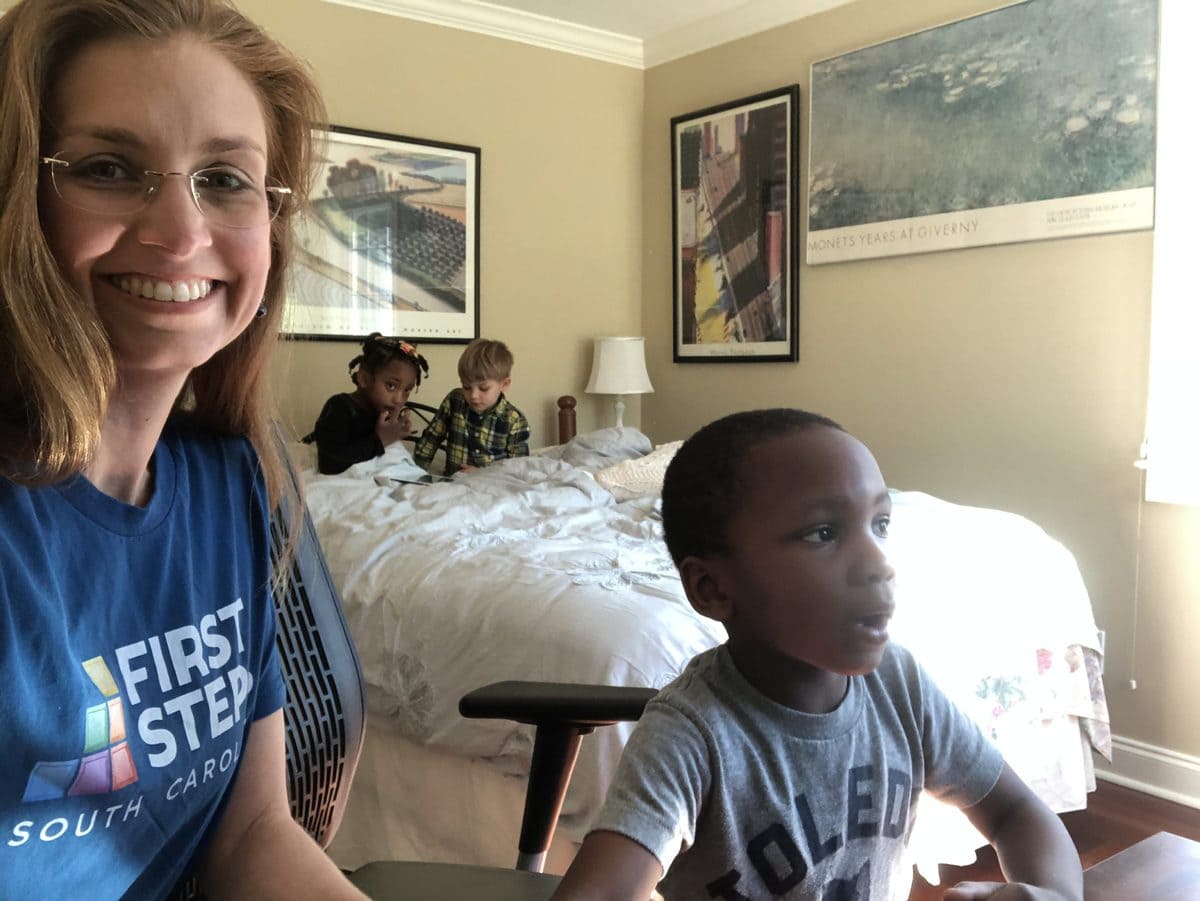Across the state, families with young children are struggling, barely making it, piecing together solutions, figuring this out, taking this one day at a time. Our children need us. For care, for education, for socialization. To keep them safe. To help them learn. Our children depend on us. And we depend on community.
The crisis of COVID has left families feeling stripped of their support. Families are caught between untenable choices. We are hearing this in the responses to our statewide survey of families with young children:
“I can’t work full-time from home and also provide full-time child care. It’s just not possible to do both well.”
“Children need other children to learn and grow. School and family is the best. They need both, not just one or the other.”
“I need to be able to work full time to pay my bills. But I have a 2 year old son half the time and cannot bring him to work.”
“I need more help so that I can work (I’m full time at my job) but I’m afraid to send my children to a center with many other children so would prefer in-home care. But that is hard to come by and expensive.”
“He is missing key learning opportunities.”
“My grandparents helped watch my children but due to their age and concerns with contracting the virus, they have not been able to. My oldest also went to half day preschool but it has been closed since March 13th.”
The mantra of this crisis has been that we are “all in this together,” but as a parent of three young children myself, I can attest that the experience we parents are having is uniquely burdensome.
South Carolina First Steps is doing everything we can to lighten the load. We are open. We are offering thousands of children and families free First Steps 4K, in-person, five days a week, in child care centers across the state beginning August 17th.
We are walking alongside families in their time of anxiety, crisis, and struggle, offering advice, consultation, and help through our local partnerships’ parenting programs, which we are continuing through virtual platforms.
We are caring for the caregivers, the brave and dedicated unsung heroes who have continued to provide child care and early education throughout the pandemic, having never closed their doors.
And we are working behind the scenes in our state and federally to ensure the web of support South Carolina’s families need, including child care, is there for them, now and in the future.
Learn how First Steps is adapting and expanding to support South Carolina families in our July newsletter.
Georgia Mjartan is the Executive Director of South Carolina First Steps and an Aspen Institute Ascend Fellow.
Topics:
Early Care and Education, Parenting



